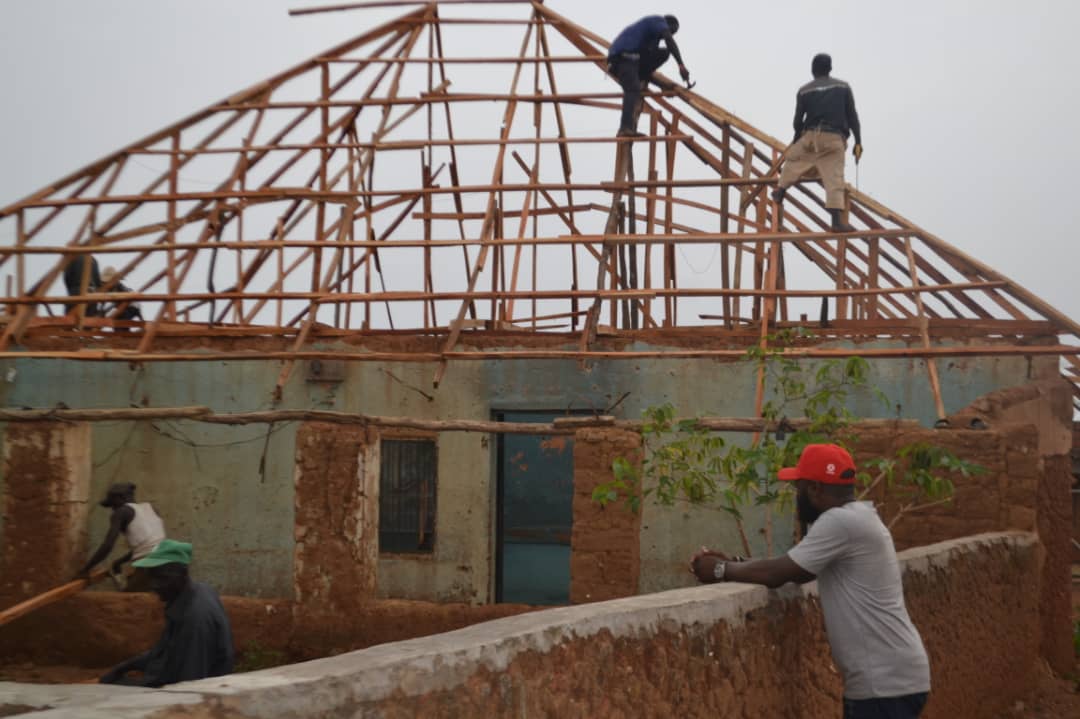Numerous communities in Plateau State, particularly those in the Northern Senatorial Zone, have been dealing with increased insecurity for more than five years. This insecurity has resulted in the loss of life and destruction of homes, farms, and other property.
One of the communities that has recently experienced a wave of attacks is Jebbu Miango, which is located in the Irigwe Chiefdom of the Bassa Local Government Area of the State.
The state capital of Jos is about 20 kilometers away from the village.
It has around 20,000 inhabitants, most of whom are native Irigwe.
While Jebbu Miango was most struck late last year, the whole Irigwe Chiefdom had been plagued by a variety of insecurity since 2016 in one form or another.
Over 70 people were killed, 1,800 homes were burned, hectares of crops were devastated, and thousands of others were left homeless during the onslaught.
Housing is still essential for people’s wellbeing in times of crisis, but the majority of people in Jebbu Miango have been forced to leave their homes and are now Internally Displaced Persons (IDPs) in their own country.
Awiki Musa, a victim of a few of the attacks, told kuryaloaded that life had become unbearable for the locals.
The widow, whose husband was killed in one of the strikes, claimed that only a humanitarian organization had been able to provide them with relief.
“Honestly, we appreciate this organization helping us out,” she remarked. I have four kids and have been squatting with some relatives in Jos ever since this incident.
We give God the honor that at least we have returned home now, and we want to rebuild life from scratch. “It has not been easy, we sleep in one room with my four children, and regrettably, my husband was slain in the attack,” she said.
Auta Danjuma, a father of five who lost his wife, his home, and his farm in the attacks, also spoke and praised the humanitarian organization for helping them.
“We praise God for this Catholic organization and its allies; only God can fully commend them for their deeds.
God asked us to forgive, therefore I have pardoned whoever attacked us, he said. “We pray we don’t endure this kind of awful occurrence again,” he said.
According to inquiries made by kuryaloaded, the Catholic Archdiocese of Jos’ Justice Development and Peace Commission (JDPC), which was concerned about the situation of the survivors, had renovated 52 of the victims’ homes.
Project Officer for the JDPC’s Emergency Preparedness and Response Team (EPRT), Mr. Felix Dimka, said that Mission 21 and Mennonite Central Committee (MCC), two international organizations, were funding the initiatives.
He clarified that the intention of the gift is to ease the suffering of the recipients, whose homes were demolished in the community’s recent attacks.
“The current attacks in the Jebbu Miango village are not new; many people lost their houses, farms, and other sources of income.
“To ease the burden, MCC gave us money, and we renovated 41 of the victims’ homes, ranging from one to five-bedroom units.
The homes of the eleven victims who were most at risk were renovated thanks to funding from Mission 21, another organization.
In essence, he explained, “this gesture is to provide the victims, especially the poorest of the poor, with roofs over their heads because, aside from food, shelter is key to human existence.”
He clarified that the residences’ restoration work had involved, among other things, the installation of new doors, windows, ceilings, plastering, flooring, and roofing.
Dimka stated that his group had also intervened in the afflicted towns’ humanitarian issue.
“We have provided the victims in Jebbu Miango and other affected communities in the area with food, clothing, toiletries, and other necessities.
All of these actions were taken, he continued, “in an effort to make sure the victims get the assistance they need to overcome their current circumstances.”
Dimka added that his group had helped 50 weak women in the neighborhood gain empowerment.
In order to increase agricultural activities, he continued, “we have also organized the farmers into 10 clusters and supported them with pumping machines and its accessories, fertilizer, different kinds of seeds, among other farming tools.
MCC has been supporting local organizations in Nigeria in the areas of peace building, health, agriculture, trauma healing, water, and sanitation, among others, according to Mr. Mathew Tangbuin, the organization’s country director in Nigeria. He claimed that his organization was founded in 1920 in Europe by the Mennonite Church to support the poor and less fortunate.
Due to the tragic nature of the most recent attacks in the neighborhood, when thousands of people lost their homes, Tangbuin claimed his organization sponsored the reconstruction of homes in Jebbu Miango.
We don’t operate in the fields, so when JDPC presented the results of the evaluation it carried out in the neighborhood, we realized the importance of offering this support.
“We decided to choose the lowest of the poor among them as beneficiaries because we don’t have the money to rebuild all of the houses that were torn down, in consultation with community stakeholders.
“We also helped others by providing them with money and farming equipment so they could utilize the earnings from their companies and farming to renovate their homes and rebuild their economies.
He declared, “We are working in the name of Christ and our goal is to eradicate poverty in communities. We support everyone who is in need, regardless of their political, religious, or tribal connections.
Tangbuin bemoaned the fact that many of the victims were still living in temporary housing and stated that, if money were available, it would support JDPC in rehabilitating more homes for the victims.
But he added that his organization’s first priority continues to be bringing about long-lasting peace in the neighborhood.
The survivors said that they are still hoping for further assistance from the government and other organizations as they work to rebuild their lives in their villages.
